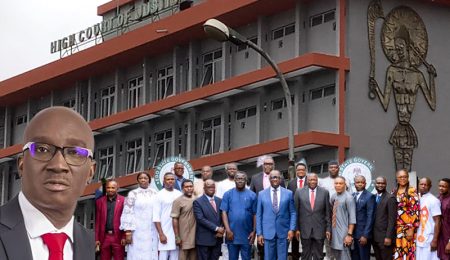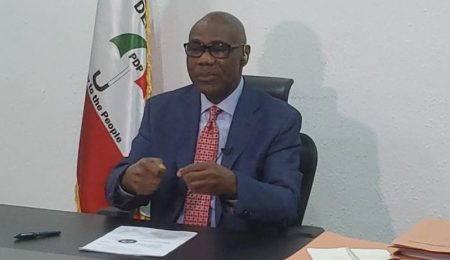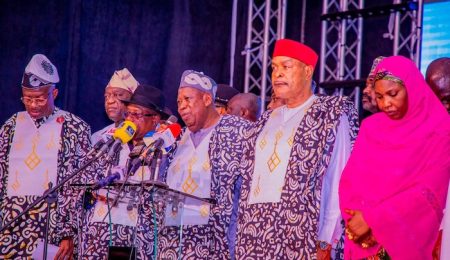Nigerian lawyer, Fred Nzeakor has said that the denial of bail to Rights Activist, Dele Farotimi has sparked widespread debate, reflecting deeper issues within Nigeria’s judicial system and its public perception.
Nzeakor In an interview with ARISE NEWS on Wednesday, analysed the case, describing it as a critical moment for Farotimi, Chief Afe Babalola, and the nation, while raising questions about the judiciary’s reliability and its impact on both domestic and international confidence.
He described the case as a pivotal moment for Farotimi, Chief Afe Babalola, and Nigeria as a whole, highlighting its broader implications for public perception and the country’s legal system.
“This is a long journey, both for Mr. Farotimi and Chief Afe Babalola, and a very long journey for Nigeria as a country because the issue has divided Nigeria into two,” Nzeakor said.
He elaborated on the divide: “On one side, you have the conservatives who are sympathetic to Chief Afe Babalola on the grounds that they feel his 61 years of service is about to be ditched into a mould of infirmity.
“On the other hand, you have the radicals who are not sympathetic to anybody other than the fact that they want a better Nigeria.
“They feel that anytime is good enough for such a better Nigeria to be birthed. If this would bring much-needed sanity to our system, especially at the judicial level, so be it.”
Nzeakor expressed concerns about the implications for public perception, both locally and internationally. “It is very unfortunate, because anyhow you look at it, perception is very important. How are Nigerian people soaking in all of this, and how are members of the international community soaking it in?” he asked.
He emphasised the importance of signalling judicial reliability to foreign investors. “We are running around trying to bring in investors, but what signal are we giving to the investors we are asking to come and invest in Nigeria?
“We keep saying that one of the critical challenges we have is that investors want to see a viable judicial system. If there are disagreements, how are those disagreements resolved? Can you trust your judiciary to deliver justice?”
When asked how well the case has been handled, Nzeakor responded, “How well is a matter of personal opinion. The magistrate cannot, with all honesty, say that he is acting out of his own self-will.
“He cannot, because if he does, there is no reason why he will not give him bail, let him perfect his bail conditions, and then come to answer for all issues.”
He pointed out unresolved legal questions: “The issue of whether it’s a criminal defamation or not, and whether it exists in Ekiti or not, is yet to be fine-tuned. If you secure an order against the publication and production of the book in Nigeria—that is Nigeria’s law—will Amazon now honour the request of a Nigerian court? Or are you going to enrol that order from Africa or wherever Amazon is based?”
Addressing how the case might be resolved, Nzeakor described the situation as “very dicey.” He posed a difficult question: “Are you going to tell those whose integrity was castigated not to go on, or are you going to look at the overriding public interest?”
Boluwatife Enome
Follow us on:


